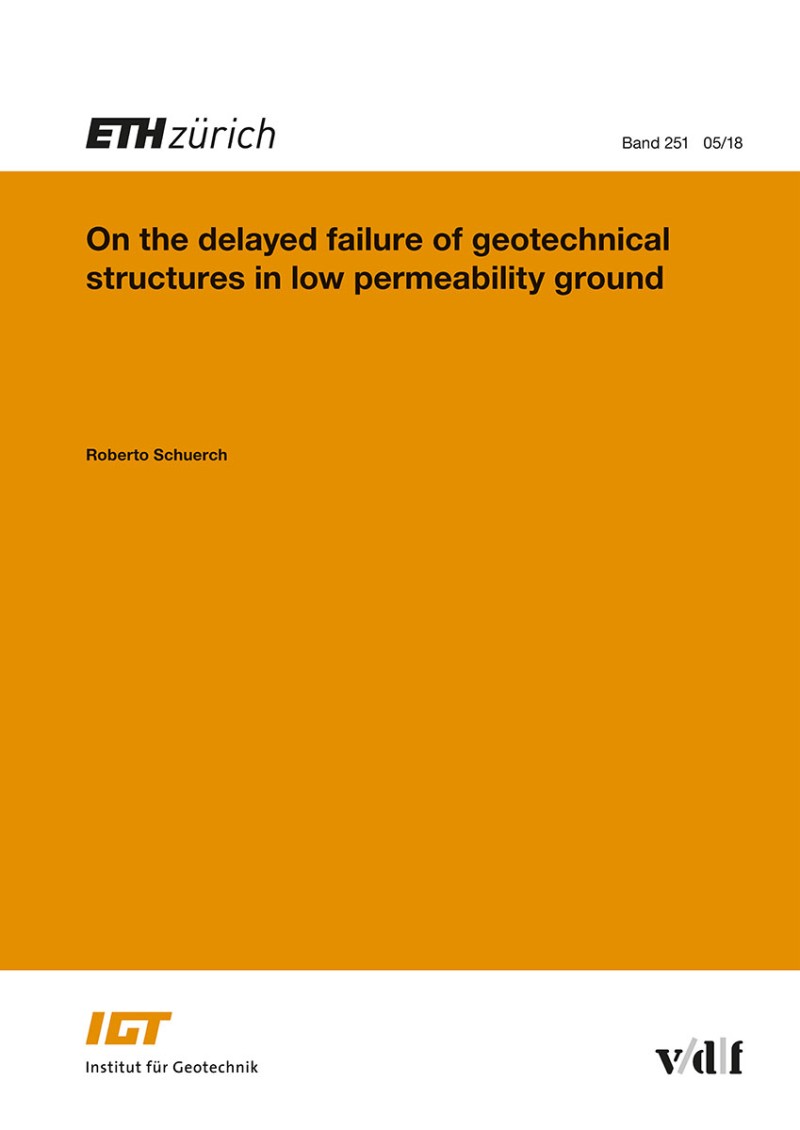On the delayed failure of geotechnical structures in low permeability ground
Tunnelling, Tunnel Jacking, Ground Stability, MC Model, MCC Model
This thesis investigates the problem of time-dependent stability of geotechnical structures (such as trenches or tunnels) in medium- to low-permeability water-bearing grounds, typically clayey or silty soils. The peculiarity of these soils is that they respond to excavation with a delay. The time-dependency can be traced back to the swelling process triggered by the dissipation of the excavation-induced negative excess pore pressures. Unstable conditions may necessitate improvement or reinforcement of the ground or the application of a support (e.g. by compressed air or pressurized bentonite slurry in the case of tunnel face). As such measures may present economical and operational disadvantages, the question of whether and for how long the excavation can remain stable without support is of great practical relevance. The stand-up time (time lapsing between end of the excavation and the occurrence of failure), and thus the feasibility of refraining from ground reinforcement, improvement or support, depends essentially on soil strength and permeability.The goal of the thesis is to
develop a computational method that allows the estimation of the
stand-up time, and thus improve construction safety and economy. The
main objectives towards this goal are:
- analysis of the mechanism of delayed failure by means of fully coupled hydraulic-mechanical continuum-mechanical simulations, investigation into the role of the constitutive behaviour of the ground (particularly that of plastic dilation), and
- development of a practical method of dealing with the numerical problem of mesh-sensitivity which occurs due to the localization of deformations when assuming non-associated plasticflow in any geotechnical structure at failure;
- planning and performing experiments and validation of the computational method and assumptions; systematic investigation of the stand-up time of the tunnel face and working-out of design charts.
For further information see extract.
- Buchreihe: Veröffentlichungen des Instituts für Geotechnik (IGT) an der ETH Zürich Band 251
- Auflage: 1., 2018
- Seiten: 226 Seiten
- Abbildungen: zahlreiche Abbildungen, z.T. farbig
- Format in cm: 21,0 x 29,7
- Einbandart: PDF
- ISBN: 978-3-7281-3857-6
- DOI: 10.3218/3857-6
- Sprache: Englisch
- Lieferstatus: gedruckte Ausgabe vergriffen, als eBook lieferbar
Zusatzangebote
| Name | Dateityp | Zugriff |
| Inhaltsverzeichnis / Table of Contents | PDF-Dokument | |
| Leseprobe / Extract | PDF-Dokument |
eBook Anbieter
Preis je nach Anbieter, erhältlich u.a. bei:
 |
Buchhaus.ch (Lüthy, Balmer, Stocker) | zum Anbieter |
 |
eBook.de | zum Anbieter |
 |
Google Play | zum Anbieter |
 |
Amazon Kindle | zum Anbieter |
 |
Ciando | zum Anbieter |



